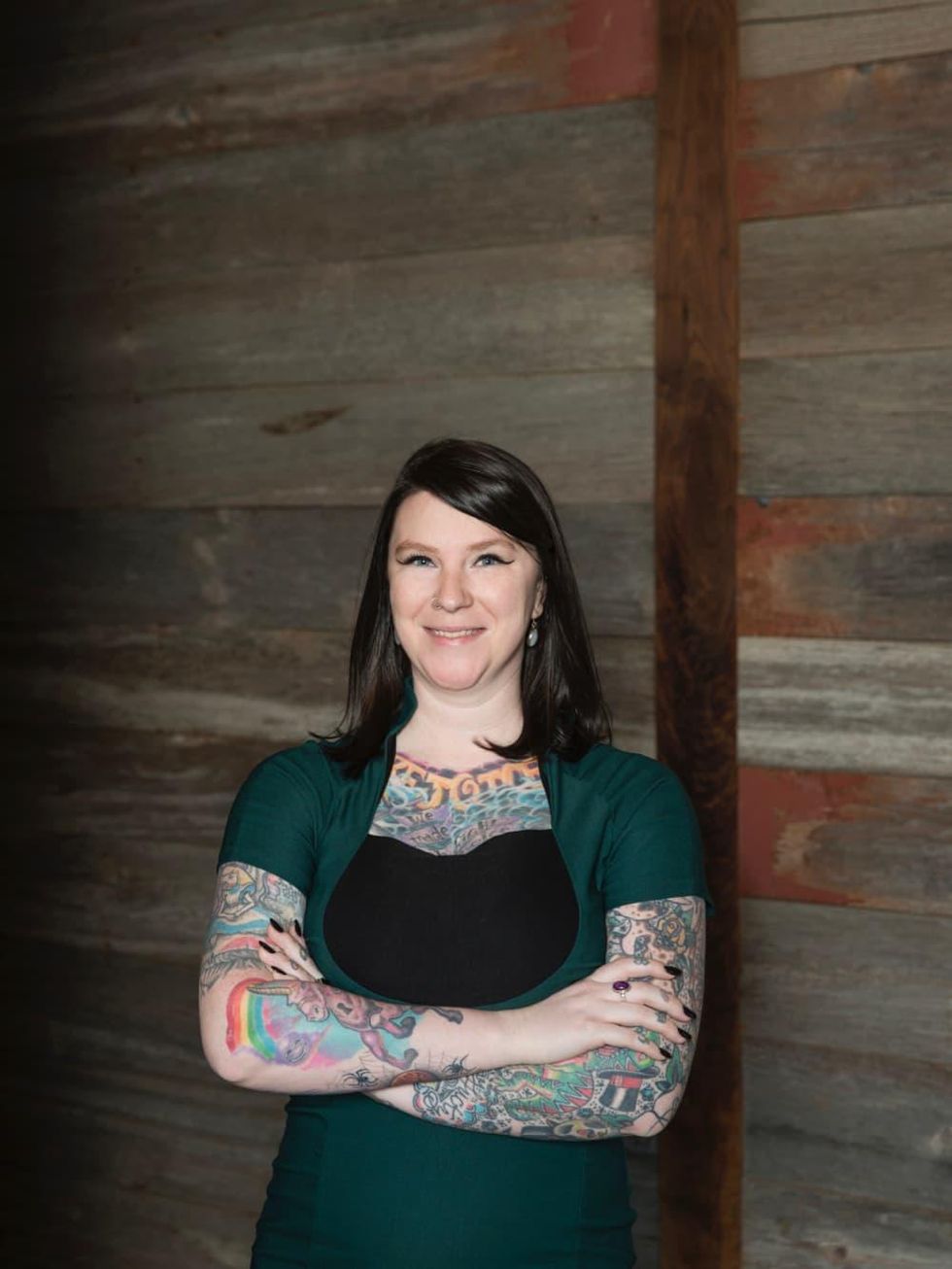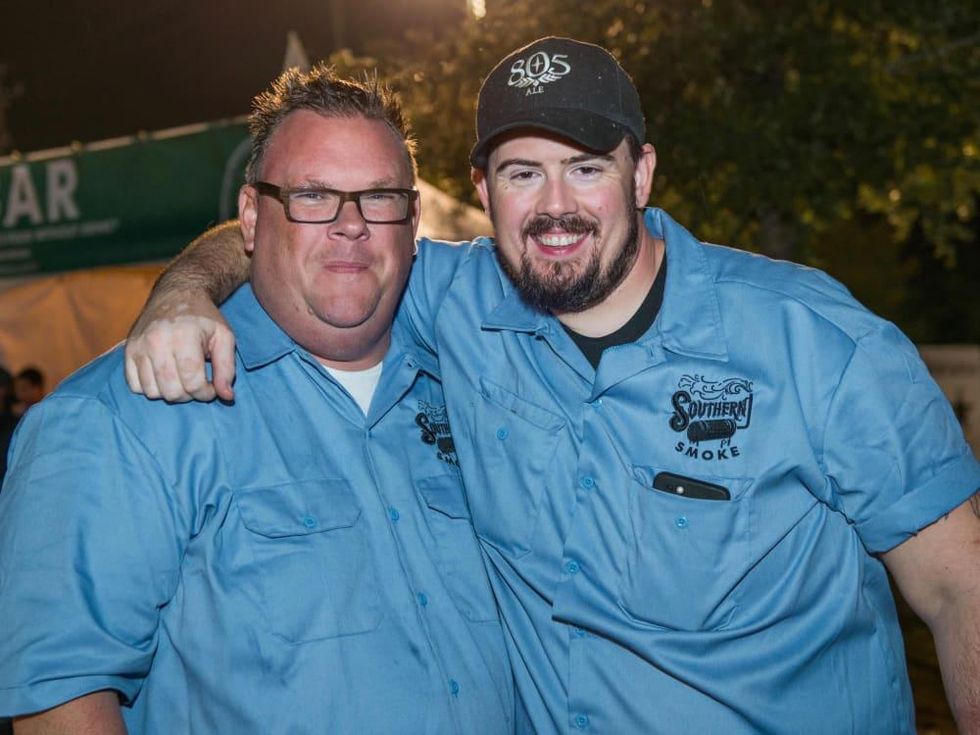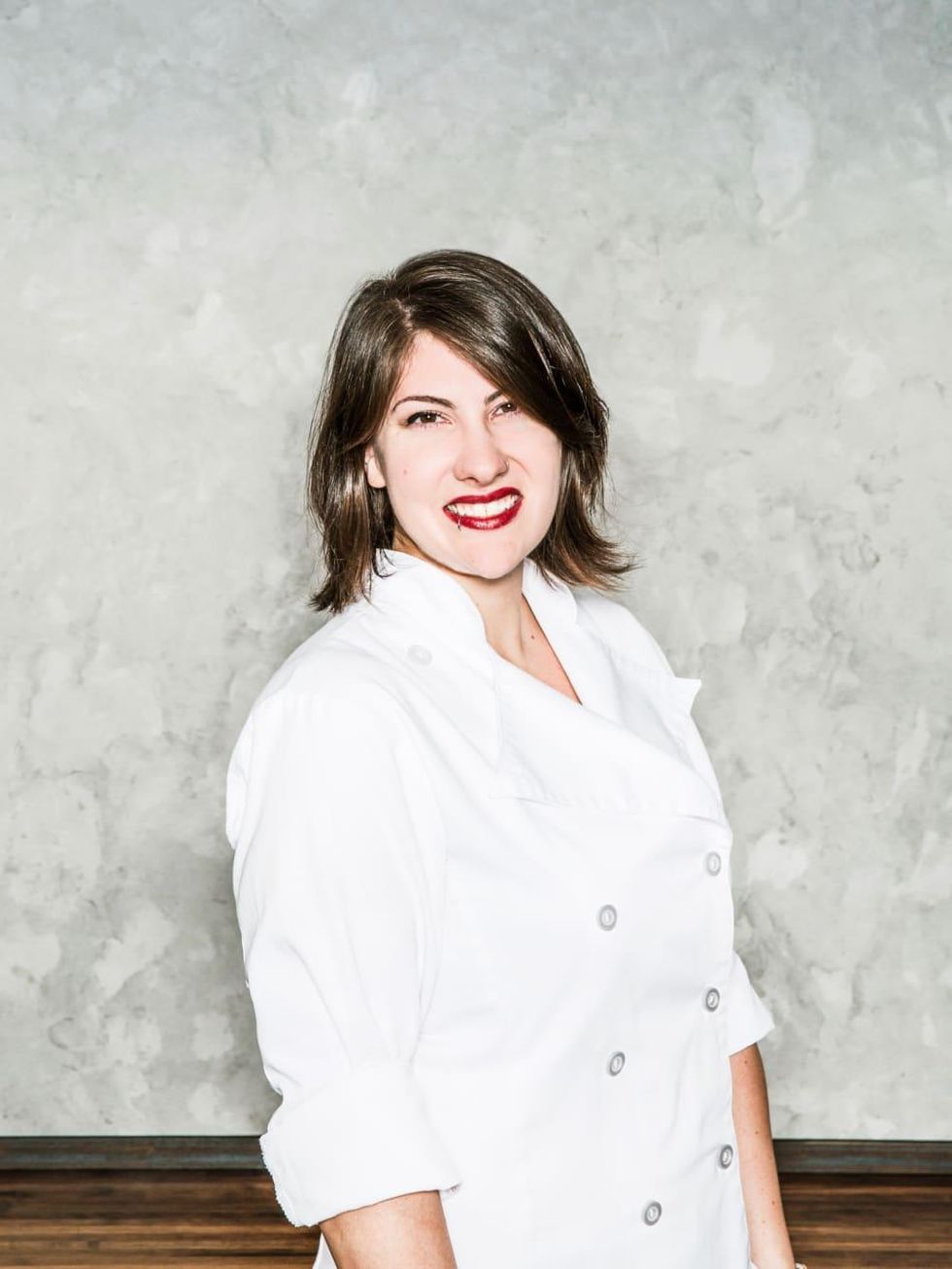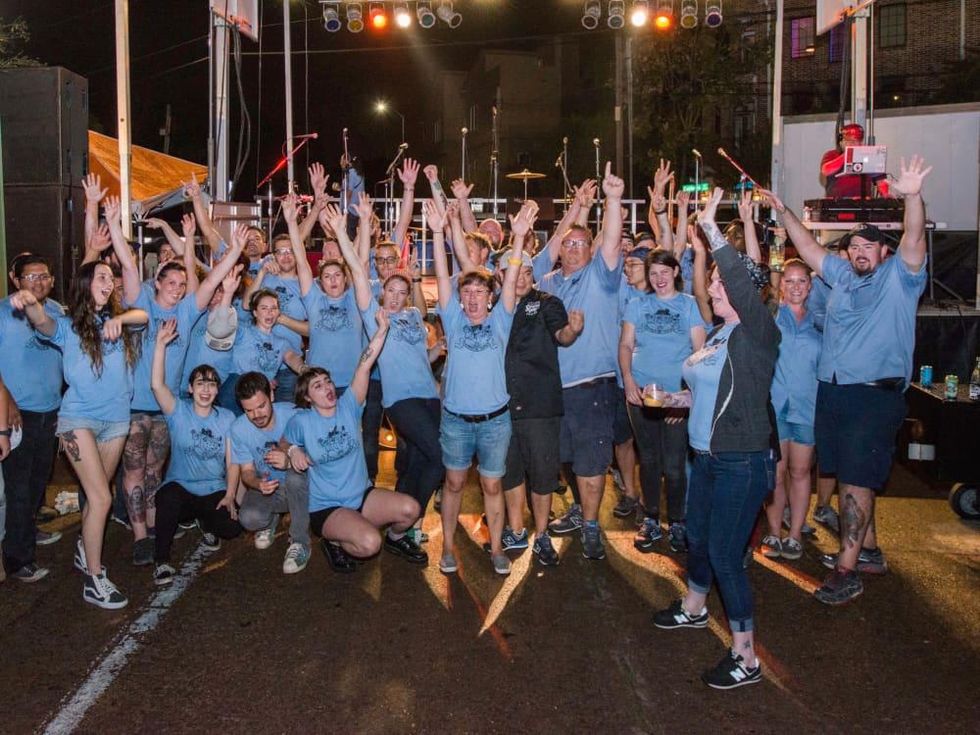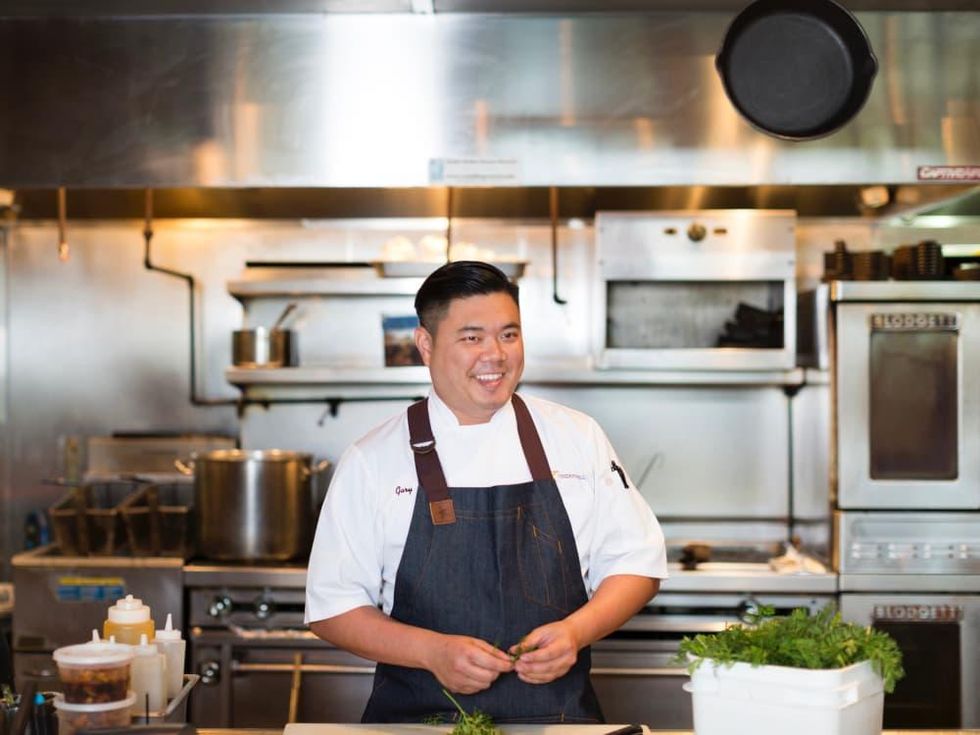The CultureMap Interview
Underbelly celebrates fifth anniversary as culinary team discusses what's next
By any measure, Underbelly has achieved extraordinary success during its five-year run. The restaurant that tells the "the story of Houston food" by serving dishes inspired by the city's immigrants made with high quality, locally-sourced ingredients has served as the standard bearer for Houston's rise to prominence as one of the country's top dining destinations.
Chef-owner Chris Shepherd has achieved extraordinary personal success, too, earning both a Food & WineBest New Chef award and breaking the city's 22-year long James Beard Best Chef: Southwest award drought in 2014. When CultureMap spoke to Shepherd that fall, he was adjusting to the newfound celebrity that came with the Beard honor and the departure of two longtime sous chefs, Dax McAnear and Lyle Bento.
Since then, the chef has remained at the heart of Houston's culinary community. In 2015, he launched Southern Smoke, a celebrity chef-fueled, barbecue-themed fundraiser that's generated over $450,000 for the National MS Foundation in just two years. In January, Shepherd opened One Fifth, his ambitious restaurant that will change its concept every year for five years.
Currently, it's a steakhouse that maintains Underbelly's commitment to utilizing local meat and produce while mixing in some Asian-influenced touches like the signature uni panna cotta. After that restaurant closes July 31, One Fifth will reopen as a Mediterranean-inspired restaurant that harkens back to Shepherd's Catalan days.
Underbelly will celebrate its five-year anniversary on April 23 (rescheduled from this Sunday due to the probably of rain) with a street food carnival that features dishes like barbecue brisket and Korean-style whole hog ssam as well as games like a dunk tank and ring toss. The $45 tickets are on sale now.
To take stock of five years at Underbelly, the transition towards opening One Fifth, and what's next, CultureMap sat down with Shepherd, his business partner Kevin Floyd, Underbelly sous chef (and Tastemaker Awards Rising Star Chef of the Year finalist) Gary Ly, pastry director (and Tastemaker Awards Pastry Chef of the Year finalist) Victoria Dearmond, wine director Matthrew Pridgen, and Underbelly general manager Katy Brittain. That hour-long conversation has been slimmed down to six big picture questions.
CultureMap: How do you feel about making it to five years?
Chris Shepherd: For me, this was always a dream. To be able to fulfill that dream and to go as far as we’ve gone so far and still not seeing the light at the end of the tunnel, it’s pretty amazing to me. That’s what this kitchen has always been, an evolution and a change. Every day is something different. The way we’ve set this restaurant up, showing and highlighting not only the cultures that exist in our city that are ever-changing, the farmers that we use, the seasons that we have, and the staff that we have. There’s always that movement in time that we seem to grasp onto that works out well for us.
CultureMap: Did you see the menu Patrick (Feges) posted from the first night of service?
Shepherd: I have it hanging in my kitchen.
CultureMap: None of those cooks are still here.
Shepherd: Victoria.
Victoria Dearmond: I’m the last of the Mohicans over here.
CultureMap: Did you think when you opened that almost everybody would spin off to do other things?
Shepherd: I kind of figured it would happen. When we opened, it was with a kitchen of all sous chefs and people who were running kitchens. They were going to be here for a year or two years and then go do their own thing. That’s what we always wanted.
We did that, and then we went back to the basics. We went back to having folks come in that had never really worked in restaurants before, or were new in their careers.
When we opened, it was a learning kitchen, but everybody knew a lot. Now, it’s a learning kitchen and a teaching kitchen. You can look down the line right now (he points to kitchen.) She’s been cooking for three months and going to culinary school. Eduardo, eight months cooking. Madeline got into her cooking career at Hay Merchant, and she’s been here two years. She’s worked at every station on the line.
People are growing and evolving. It’s our job to teach the younger generation to become those people and to have that interest and desire to learn and move every day.
Just like the city is. I think you see the cultures in the city changing. From what we have in Houston, take the Vietnamese culture for example, it’s always been that first generation of cooking, that mom and pop. Now, you’re starting to get into the second generation, where they have their own ideas and they have their own skills sets. They’re doing different things all over the place, a lot of the street food, snack food things you didn’t see before. It’s us on the bleeding edge of it.
CM: Are there dishes or cuisines that you’re incorporating into the menu that you couldn’t have five years ago?
Gary Ly: I think Vietnamese food. We’ve always done it . . . but the spotlight is on it now. Everyone is interested in it. Everyone wants to eat Vietnamese food. Everyone wants to eat at these other places.
Shepherd: And it’s not just pho and banh mi anymore. It’s everything. It’s, like, who’s got the best this, who’s got the best that. It’s letting us as cooks see it, too.
Ly: People are accepting fish sauce as a normal condiment now.
Shepherd: Five years ago, I didn’t use a lot of fish sauce. Now, I use it on everything. Jack, one of our cooks, did a green garlic puree. I went, I’ll be back in a minute. Blended it with fish sauce, bring it back, now try it. That’s delicious. That’s fish sauce. For us, it’s adapting all over the place.
Katy Britain: It’s for the guests, too. It comes from all the stuff. We go all over and try new things. It’s normalized for the servers to speak to the guests that fish sauce isn’t weird for us, and it shouldn’t be weird to you. It was a gradual thing for sure.
Kevin Floyd: I think for the Houston consumer the palate has always been there. Thanks in huge part to the older Mexican culture that existed, the ability for us to consume spicy foods has always been there. What’s really changed over the last five years is their comfort with language that wasn’t there before. Terms like pho are part of the daily lexicon.
They’ve always been able enjoy that kind of food. They just weren’t comfortable with ordering it, because they weren’t comfortable seeing those words on a menu.
CM: What has it been like dividing your time between the two restaurants?
Floyd: The biggest challenge for (Shepherd) was getting him comfortable with the idea that these people can handle the day to day minutia. He’s always been that person. Like, literally opening the restaurant in the morning to make sure the prep cooks can get in, accepting deliveries, talking to the farmers.
Shepherd: Even yesterday, we talked about putting this smoked fish gumbo on the menu, and I said, ok, I’ll make the gumbo. Gary said, no, I’ve got it.
Floyd: There’s easily about 50 percent of the things he was doing every day six months ago. They’re mission critical for the buildings to open, but they’re the same thing day after day.
Getting it to the point where we had a core group of managers. Although Matt and Vicki have been with us from the beginning, getting to the point where we had the right people in place, increasing our labor expenditure to pay the right people the right amounts, and getting into a top-down hierarchical management situation. I spent the better part of the last year getting it setup so that we could effectively do another restaurant. And making sure he was comfortable with the fact that the farmers are going to get paid, the chicken wings are going to get made, the building’s going to get opened and closed.
Shepherd: It’s been really hard for me personally.
Ly: We’ve had this conversation before. There’s times when he comes here, and I know he just wants to cook. But then I also see he also needs rest, and I’m like, chef, go home. We’re good. We’ve got this.
Shepherd: I just make the fish sauce with vegetables all night long. I do that for the entire shift. Or I’ll run down (to One Fifth) and grill for a few minutes.
Floyd: If Gary or Vicki or Katie or Nick didn’t throw him out at least once a week, he’d work seven days. He’d work 40, 50 days in a row. That is not the best case scenario for people. I’ve got the advantage of a wife and a kid that force me to go home. If I didn’t have that, I’d be in the same spot.
Lindsey Brown: The night before One Fifth opened to the public, Chris was here. We all talked about it. We knew why he was here. It’s not running like clockwork down the street yet, but he can walk in here, and it feels like home. It’s comfortable. He wanted to be here to get ready to go back down there to something that’s not quite as comfortable.
Shepherd: I did it to clear my mind. Like she said, it’s comfortable. This, Underbelly, is that spot on the couch that’s got your ass imprint in it, and you’re comfortable with it. And you can put your feet up, and you know how everything’s going to work. Down there, it’s a bike seat, and you’re just trying to figure out how to ride it. It’s challenge, but I can always come in here. Down there has gotten to that point, too, now, because I just shuck oysters. It’s me out of ways. I want to learn to shuck the perfect oyster and do that fast.
Here, I just end up talking to the cooks and talking to Gary and making sure everybody’s good. Let’s talk about ideas, let’s talk about this. That was what was supposed to happen. Hiring Nick and bringing him on and having Gary move up and moving chef de cuisines into where they’re supposed to be. They are me.
CM: You came up through Brennan’s, which is celebrating its 50th anniversary this year. Do you aspire to that kind of longevity for this restaurant? Do you think it will be here 20 years from now?
Dearmond: I think if it is, it will be totally different.
Shepherd: It will be totally different, because it’s totally different all the time. It has to evolve and change. It’s with the people that are here, it’s with the staff that’s here. It’s the way the city evolves. I can see this restaurant really changing in the next five years. The cultures of the city are changing. As I said earlier, now you’ve got that second generation. As they start doing more and more and more, that’s going to evolve the food in the city.
Dearmond: It’s also going to evolve the places we go to eat and try things and want to taste something and say "this is fucking amazing, how can we do this in a way that’s Underbelly?"
Ly: Our cooks right now are young cooks. Most of them are second generation. They aren’t having pot roast and green beans for dinner every night. They’re having tacos and tortas and Korean food and Vietnamese food. They have their perception of what Houston food is. As they grow, their palate will go also.
CM: We haven’t really gotten to talk about One Fifth since you announced it. Let me ask you the question that everyone is asking me. What happens if one of the concepts just catches on fire? If you’re full from 5 to 11, seven days a week? Does that concept get spun off? Do you delay opening the next thing?
Floyd: We will never delay the next one. We are sticking to the schedule we announced.
Shepherd: The numbers and the people and how busy it is at One Fifth right now, why would I change that? It’s crushing. It’s great, and it’s fun. The first few weeks as we opened, I was terrified. Now I can eat there or try a dish and (think) this is a good fucking restaurant. The food is good here. It’s inspired. It’s texturally right.
CM: Ok, but what happens if one of the One Fifth concept just explodes?
Floyd: I think we have a five-year lease, so that’s the reality of it. (The landlord) wanted a three-year lease, and I talked them into a five year lease. There’s no way in hell I could get a 20-year lease.
We have a five-year lease. For all intents and purposes, there might be something hypothetically that happens at the end of five years that would have us continuing to operate a restaurant in that building, but that’s a real estate conversation that’s really outside of our control as far as whether our landlord wants to offer us that situation.
Because we can’t know beyond five years, we’re going to stick to the concept we have, which is a five-year project. That being said, this is giving us excellent data to be able to make some pretty educated decisions about whether or not we would do one of these restaurants as a freestanding restaurant.
It’s still a real estate driven question. If we find the right type of real estate to do a steakhouse, I think the numbers we’ve seen so far indicate that’s a good business model. I’m not going to go out and horseshoe a steakhouse into a building or a location that doesn’t need a steakhouse.
For example, my wife and I just moved to The Heights. There’s a lot of real estate opportunities there, but I do not think a One Fifth-style steakhouse is what The Heights needs. If the right kind of real estate shows up, we’ll probably do a steakhouse.
If we were just thinking bottom line only, which is an important part of our thought process, we would continue to run One Fifth Steak for the next four-and-a-half-years.
CM: You said you have the management structure in place to do multiple locations. Are you already thinking about what the next thing you open is going to be? Do you think the two of you working together is going to be a lasting business relationship?
Shepherd: I think so. I think we work good together. We do have the staff, and it’s interesting to be able to put people in different roles. Have Katie move up to be GM. Have Matt not be GM anymore and become the wine director for both places. Moving Victoria into her spot and Gary into his spot. It’s in essence why One Fifth came about. We had the staff to do it. We had the people to put in those places. We’re loaded, and now it’s time to reload and see what happens for them. See where they want to go.
I think between the two of us we have good ideas about things, and we can look at properties. We look at properties all the time. You have to.
Floyd: I love looking at buildings, too. People call me up all the time, you want to see this? In my head, (I think) I’m never fucking going to put a restaurant there, but sure.
Shepherd: He goes and looks at things without even talking to me, Hey, I went to see this. Cool. Then there’s the dumb ideas that I have, and I’m like I want this. Get people looking for it. They may not totally agree with the things, but it could work.
Floyd: Chris has dozens and dozens of amazing ideas. We talk about ideas all the time . . . It really becomes a matter of timing as far as the real estate showing up at the right time for the right deal, our staffing being in a position to be able to handle that. We did not go out and find a five year lease to do a five year project. The real estate presented itself, and we came up with an idea to make it happen.
Shepherd: That gives us the opportunity to do five different things that could turn into those concepts, right? We could do all five. I don’t want to work that damn hard, but physically we could. If we liked all of them, if we found the spots to do all of them, all of those places could become their own individual thing.
Floyd: One Fifth was the first project Chris and I did on our own. We had other partners, obviously, Whitney and Steve, but that project, for all the things that it was, what it definitely was really great to do that project with Chris. I knew that he was doing a steakhouse menu, and that was about the extent of what I really knew about what he was doing. He told me what he needed equipment-wise in the kitchen, and that was about it. He let me just do whatever I wanted to do as far as the front of house design was concerned.
I think we have a really good working relationship, and I don’t see any reason why we wouldn’t continue it.
Portions of this interview have been edited for length and clarity.
